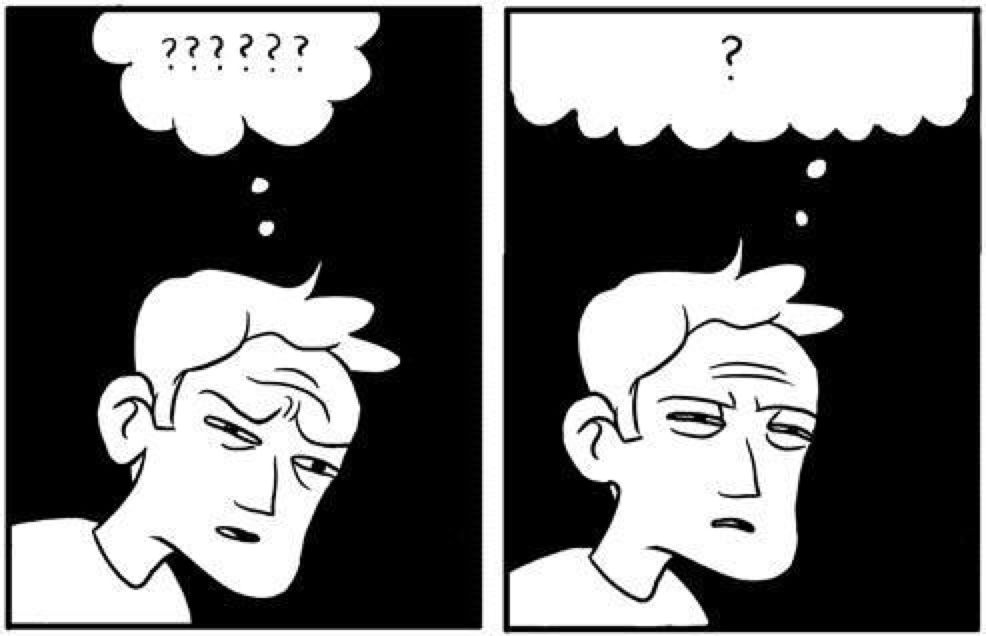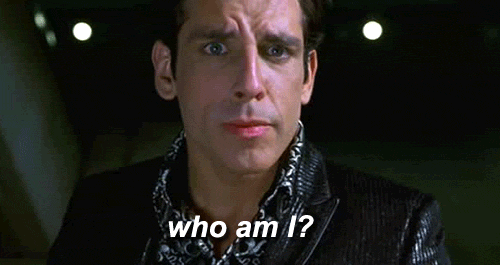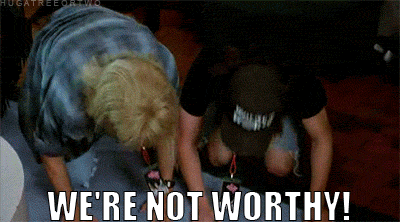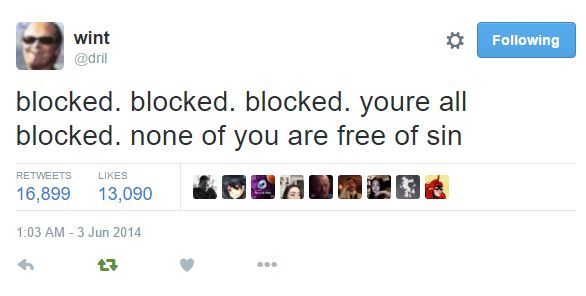It’s been a few days since the metal community was seemingly upended by a video depicting Phil Anselmo (Down, ex-Pantera) performing a Nazi salute and screaming “WHITE POWER” at the end of his set at Dimebash 2016. The video dropped like a nuclear bomb, bringing with it far-reaching radiation across the internet as music columnists, artists, and fans have been tearing each other apart over how strongly one should criticize or defend him. We already made our view of the situation pretty loud and clear, and thankfully our regular readers have shown their support by and large. It’s been a messy and, at times, ugly conversation overall though. As Noyan cited from Machine Head‘s Robb Flynn on the topic, more popular and mainstream sites like Blabbermouth and Metalsucks had to shut down the comments (though it appears they’re active now) on their own articles on the subject due to the furor that erupted from those defending him and attacking everyone else around them. And on our post, even though we strongly believe in free speech and stand against censorship of ideas and opinions, we felt the need to delete some comments that we found particularly hateful towards other metal fans who actually read our site regularly and unproductive to any discussion whatsoever (such as lengthy justifications for eugenics and segregated societies).
Because so many of us who are accustomed to the ways of the internet and internet comments have witnessed this kind of thing play out time and time again, I think many of us have developed a kind of jaded and cynical view to these types of situations. Dissenters throw out words and phrases like “hipster,” “sjw,” “political correctness,” and generally bemoan something they feel they’ve lost in the “scene.” They feel they’re being put on the defensive more and more often by other sectors of the metal community – ones they would label as “poseur hipsters” who are turning metal into a joke that simultaneously takes itself too seriously and doesn’t value what they view as the foundations and traditions of the music (and those who were responsible for building it) seriously enough.
Meanwhile, those of us on the other end tend to merely roll our eyes, label them as obsolete racist cretins who are clinging onto the worst aspects of the scene and ultimately holding it back, and largely dismiss them. And though personally I (as well as pretty much everyone involved with this website) certainly fall more into the latter category than former, I recognize that both sides of the argument are ultimately myopic and too simple/broad. When we fight about these things, we’re all taking the easy way out by focusing solely on the target at hand and not at all why we fight about these things to begin with. We should be asking ourselves, Why does this happen? Why do we care so much about the actions of these people we don’t know? Why do we get so offended and outraged when our preconceived notions and admiration for these people are questioned? And mostly, why is it that we suck so much at talking about any of this?
Why We Actively Resist Nonconforming Information
Before I continue, I feel the need to state that everything going forward is based on the premise that the vast majority of people involved in this community and these conversations – including those who have either come to Anselmo’s defense or have attacked individuals and sites who have criticized – are not “actively” racist (I’ll circle back to this later on to make the distinction between active and passive racism) individuals. I truly don’t believe that’s the case for this community, for people who listen to metal, or for people who listen to and have enjoyed the music Anselmo has been a part of. So for everything beyond this, I am speaking about this overarching majority of people and not the relatively minute (albeit very vocal) group of people who are actively commenting on articles with putrid and backwards views on race, tribalism, or whatever the fuck terminology these hateful people use to justify the premise of “white power” and all that it entails.
To understand why so many people somehow always manage to excuse or rationalize the behavior of certain individuals, there’s a little bit of pop psychology and terminology we need to establish. Most people are either familiar with or have at least heard the term cognitive dissonance at some point in their life. What this is referring to is the way in which we process and react to information that contradicts information or attitudes we’ve already internalized to be true. For instance, if you are friends with someone you believe to be a good, kind person but then see them be incredibly rude or nasty to someone else, you have suddenly encountered a conflict of behaviors, which will produce a sense of discomfort that needs to be resolved. When faced with conflicting or nonconforming information, we either have to alter our original belief or find a way to discount or negate this new information.

Three Word Phrase, by Ryan Pequin
Perhaps you’re someone who is easily swayed by new information and would immediately change your view of your friend to conclude that he or she is maybe not as kind or good as you thought. Maybe you would even conclude that your friend is, in fact, not kind to everyone, but because they are kind to you that their behavior is acceptable to you. More likely than not though, if this is a belief you hold strongly, then you will opt to take the latter option. You might conclude that your friend was just in a bad mood or that perhaps they were provoked somehow. You might seek more information or context to help support your belief. Ultimately, you will attempt to rationalize this information so it conforms with your existing belief that this person you are friends with is, in fact, a good and kind individual.
There are many important psychological, sociological, and evolutionary reasons why we do this, pretty much all of which I am not at all qualified to discuss at length. But it’s not difficult to see why it might be important that we not take every piece of information that conflicts with what we’ve already experienced or believed and simply overwrite what was there. Cognitive dissonance and how we react to it is not inherently a negative thing, but it’s useful in explaining why it’s so difficult for us to deal with and have discussions about events and individuals we have strong, long-entrenched feelings about.
How The Identity Politics of Metal Makes These Discussions Especially Difficult
In the case of Phil Anselmo, there are several layers of cognitive dissonance that fans have had to go through when confronted with the reality of him performing a gesture and saying something that is universally regarded to be symbolic of prejudice and violence against racial minorities. Not only is Anselmo one of the most ubiquitous and recognizable names in the history of the genre (obtaining icon status for many), but it’s also the fact that it’s metal itself we’re talking about that makes the bond even stronger. I unfortunately don’t have any studies or solid evidence to back up this claim (I don’t believe such studies even exist), but I don’t think it’s at all controversial to say that fans of metal, in general, form a personal identity that is far more closely associated with the music, the artists, and the communities that form around it than almost any other genre of music. Even in a time when we’ve seen an overall flattening of personal identity as tied to any specific genre of music or subculture around it, the things that fans of metal value, the personal aesthetic choices they make, and the kind of people they’re more likely to consider friends and socialize with are much more directly related to the music they listen to and the values they feel it embodies than those who listen to primarily or identify first as fans of most other kinds of music (hardcore and hip-hop probably fall into this category as well though).
If you’re a fan of metal, a fan of Phil Anselmo, a fan of Pantera – one of the most relentlessly popular metal groups in existence that has inspired thousands upon thousands of kids over multiple generations to pick up a guitar, headbang until their necks hurt, scream until their vocal chords are raw, and brought them into an entire subset of music and community associated with it – and you are confronted with physical, recorded evidence of the man that represents so much to you, it’s going to be a particularly jarring bit of cognitive dissonance to reconcile. Not only that, but you listen to a genre of music that, although has seen a general decrease in stereotyped beliefs about the music as violent and hateful and its fans along with it, still has a persistent negative association tied to it for huge swaths of the population. If you’re this person, and you start seeing large metal publications and websites condemning Anselmo, other artists and bands in the community following suit, and countless other people, it can be difficult to not feel like you are personally under attack for the music and people you have so closely aligned yourself to. It can feel like your entire identity is under attack, that you are being told not only that Phil Anselmo is a racist, but that, by logic, you are a racist for wanting to support him and listening to his music.

And that’s a piece of cognitive dissonance you surely can’t abide. You know you aren’t a racist or a hateful person! From there, the rationalization becomes less focused on Anselmo, who by this time isn’t the primary point of conflicting ideas or beliefs, and outward towards the people and institutions that, either implicitly or explicitly, are saying you are a racist and causing you to go into a defensive crouch. You now have to rationalize away what they’re saying as false in order to maintain your own cognitive order. The reason these people are attacking you about these things – about racism, about sexism, about homophobia, and about other things in metal and the community that they find distasteful – is because they’re not “true” metal fans. They must be some new wave of liberal, overly politically-correct hipsters who feel the need to tell everyone else what they can and can’t listen to. They’re a lame morality police who are destroying the integrity of the music and scene by attacking it from within. And it’s up to you and fans like you to defend the music and your identities from this insurrection. Racism isn’t the problem in metal. It’s these damn Tumblr keyboard warriors.
Now, obviously I don’t believe any of this, and this is a gross generalization of groups of people who I don’t believe are monolithic in opinion and nature. But I use this example as a way to illustrate not only how easy it is to logically go down this train of thought, but to show how the identity politics of communities like those found in metal naturally creates a disincentive towards the kind of introspection necessary to break through these kinds of cognitive dissonance and rationalization cycles. It’s not an excuse or rationalization itself for their behavior, but it’s an explanation, one that’s necessary to understand in order to not feed into it and create a complete negative feedback loop of shit like we’ve seen this past week.
The Way We View Our Idols Makes Us Way More Prone To This
Aside from everything I’ve already mentioned, what makes situations like these so difficult to discuss rationally is in the way that we view and treat the artists, entertainers, athletes, and celebrities who fill our lives and occupy so much of our time and admiration. It’s inevitable that the people we look to most for inspiration, be it creative or otherwise, will be those who we tend to also view with the rosiest-tinted glasses. Most of these people are smart enough to have carefully-managed public personas to help maintain and cultivate this ideal vision to their fans. But even the most honest, open, and “down-to-earth” of the people we follow and idolize aren’t really what they seem. None of us get the full picture because none of us want it. We don’t want to see the flaws, insecurities, and mistakes of them out in the open that make them like the rest of us (or if we do, only just enough and innocuous enough to have them feel “relatable”). But this act of delusion just leaves us more prone to these bouts of cognitive dissonance when our idols inevitably slip up, and it makes us far more likely to rationalize and excuse behavior we normally wouldn’t.

Case in point: the fact that it’s 2016 and this is the first time the metal community appears to be having a serious discussion about Phil Anselmo despite all evidence pointing to him having openly displayed this kind of behavior for literally decades. Axl over at Metalsucks actually did a pretty admirable job of laying all of this out chronologically in a way I haven’t seen anyone else do. If it proves anything, it’s that none of this should be a huge shock to the metal community at large, nor should it have taken us this long to finally be calling him out on it en masse. Chris R., the now infamous individual who uploaded the video at the heart of all of this, as well as Robb Flynn in his video denouncing Anselmo, both cited being afraid to call out Anselmo because of his status as a larger-than-life figure in metal history and the community. He’s a legend, and one does not knock a legend down a few pegs without some serious blowback.
But why? Why do we allow ourselves to be so enraptured by these people that we allow ourselves to become either so blinded to their faults? We would all be so much better off overall if we could accept that the people we admire or look up to in music, film, sports, or elsewhere are incredibly flawed like the rest of us and probably really unlikable in certain respects. They might be nice, but they’re probably fucked up in some way. And that’s okay! It’s okay to admit that while still appreciating what they’ve contributed artistically or whatnot (more on that shortly). But we need to be honest with ourselves about the people we look up to, and turning a blind eye or making excuses ultimately does no one any good. We need to hold others accountable, but first and foremost, we need to hold ourselves accountable and call people out when they do stupid or offensive things. No one person can be made above that.
There Is No Such Thing As Moral Purity
While I’ve been focusing a lot on the people who are more likely to defend the actions of people like Anselmo, we’re all guilty of blind idol worship. Whether you like it or not, your fave is problematic. No one is immune to this. Fuck, Beyoncé isn’t immune to this. You might quibble with the entire premise of some of these arguments, and certainly some of these things are more blatant, explicit, or serious than others, but the more that we can all accept that 1) our own personal feelings, experiences, and morality do not encompass the entire scope of feelings, experiences, and morality for everyone; that 2) not finding something personally offensive does not automatically render the thing non-offensive; that 3) that we all do offensive shit and screw up occasionally; and that 4) that’s okay because we’re humans and it’s okay to admit to screwing up, the better off we will all be. We will be happier, less prone to escalated conflict, and it means we can actually talk about the issues at the root of these controversies rather than the validity of the controversies themselves.
Is Phil Anselmo a hardcore racist? I can’t say for sure, though there’s certainly a wealth of evidence of him performing acts that many would construe as racist. He certainly has done racist things that he needs to be held accountable for. Regardless of those facts, the underlying issues present in all of this – the idea that there is a strain within the music we devote so much time to that seeks to consolidate the considerable power that the white race has to continue the systemic inequalities against minority races – is something that needs to be discussed, picked apart, and talked through in the community at large.

And for those who think they can somehow rise above these controversies by simply dumping anyone they find controversial or offensive, you’re also deluding yourselves. No one can completely wash their hands clean of these things, nor should you. Shortly after the Anselmo story broke, one of our writers publicly asked if he should throw away his Down shirt and essentially disassociate himself with the band and their music despite loving their albums. We already broached this topic in our post on separating art from the artist, but I personally feel it’s largely unproductive to completely disown the work and music of someone because of their personal controversies. This isn’t a hard and fast rule, and ultimately it’s up to each individual to determine their comfort in each case, but rather than try to achieve a moral purity that’s utterly unattainable, I feel we should instead demand better of them and stay on their case while still being able to appreciate their body of work. To only do the opposite by completely disowning/discrediting the artist, their work, and anyone who still follows them not only makes you appear stuck up, but it’s actively erasing yourself from the conversation around it.
How To Not Suck As Much The Next Time This Happens
Look, at the end of the day, these kinds of things suck. The things that these people do suck, oftentimes their reactions to being called out for them suck (not even going to touch that Anselmo “apology” video), and the ways we deal with them and talk about them suck. I’m under no illusion that we’re going to turn internet comment sections and social media threads into a bastion of intellectual and well-reasoned discussion of incredibly complex issues. But if we all at least become a little bit more aware of what we’re doing when these things transpire, what kinds of logical thought patterns we naturally retreat into, and stop simply trying to out-moralize the other and come out on top looking the best, we might all be a little less angry and a little more able to cope with these situations as a community in a way that’s ultimately productive and unifying rather than utterly divisive.
Once again, I’m not talking about the “true believers,” the ones who in this case are through-and-through white supremacists with real racial prejudices, the ones who were seemingly laying low all this time and saw this as a kind of awful racist Bat-signal to come out and spout their nonsense (even the ones who attempt to couch their claims in rational arguments using “science,” psychology, sociology, or whatever are spouting nonsense informed by an incredibly limited view of how the world and humanity works). Arguing with them will rarely, if ever, lead to thoughtful, productive conversation. But there’s a difference between active and passive racism. Passive racism doesn’t actively promote language or action that is threatening or harmful to racial minorities, but it is one that is implicit in it and its continuation and proliferation by either refusing to acknowledge it or condemn it. In some ways, passive racism is more detrimental in the long run because it’s more difficult to spot and much easier to fall into without even being cognizant of it. But it’s also what makes it more possible to address and engage.
So, to those people, or to anyone who feels that they’re being alienated, attacked, and shut out of the greater metal community, I say this. We are not the enemy. We are as much fans of this music as you are. It is a part of us, a part of our identity. But we also acknowledge that there are parts of this music’s history, parts of the community, that are not perfect. There are problems, and most of these problems are not constricted or limited to this community, but as parts of that community we feel we have both the ability and the obligation to question it, to criticize it, and to form dialogues about it in hopes that we can improve it over time. It is to our advantage to be vibrant, welcoming, and accepting of a wide variety of people from different backgrounds, different races, different sexualities, different genders. It’s how you keep a music alive, how you continue to bring in people who will do new and amazing things to push the genre forward, to keep the Golden Age of Metal going, and how to ensure there will be future golden ages as well. We don’t want to shut you out. We don’t want to tell you what you can and cannot listen to or do. You are a part of this as much as we are. But we will continue to bring these issues to light that are not welcome in any community or artform in this day and age, not because they are present only in metal, but because as a part of the greater metal community we don’t want those things to be a part of us. We are on equal footing, and we can disagree vehemently about many things while still believing all of that.
To the rest of us though, I also say this. We also have to be better. Not only do we need to call people out when they do problematic things, but we can’t stop there. We need to talk about it and be better about communicating why it’s problematic. We need to engage more and dismiss less. And we need to do so without acting like we’re morally above the discussion. None of us are immune to these issues. This isn’t a call for everyone to be Kumbaya and engage in some new-age understanding and forgiveness bullshit. That doesn’t exist. But we can all do better. We must do better.